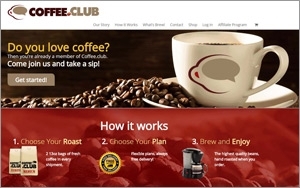 Google paid $25 million for the rights to use the .app top-level Web domain name, one of many the company aspired to gain, but it was not the only bidder. Amazon also
applied for the name, but settled for ".buy," paying nearly $5 million, and about $2.2 million for ".spot" last fall. Amazon and Google also are fighting over the domain name "mail."
Google paid $25 million for the rights to use the .app top-level Web domain name, one of many the company aspired to gain, but it was not the only bidder. Amazon also
applied for the name, but settled for ".buy," paying nearly $5 million, and about $2.2 million for ".spot" last fall. Amazon and Google also are fighting over the domain name "mail."
Jeff
Sass, CMO at .club, a top-level domain name registry for the name, knows how it goes. The names are sold through registrars, such as GoDaddy, for between $10.00 and $15.00 annually. But .club pays to
own the rights to license domain names to others. "We set the wholesale price and sell through the registrar," he said. "They mark it up and sell it to consumers or brands. ICANN gets about $0.25 per
domain name sold."
.Club Domain, a private start-up founded by Colin Campbell, raised more than $8 million to apply for the domain name and start the company. Now the company owns the
rights to .club domains. Similarly, Google began applying new top-level domains (TLDs) in 2012, four years after ICANN decided to expand the overall number of generic TLDs. Google applies
for more than 100 names, many of which now are under its headquarters' wing.
The Internet Corporation for Assigned Names and Numbers (ICANN) has been auctioning off the
different domains since June 2014. Google has been gobbling up names under Charleston Road Registry, a company it set up to apply for the domain extensions.
Sass said a company recently bought
coffee.club for $100,000 and launched a subscription-based coffee business. Wine.club sold for $140,000. Justin Kan, who recently sold Twitch to Amazon, will use the name thedrop.club for a new
streaming music site and community.
Two years ago, some brands attending the MediaPost Search Insider Summit debated whether the idea of specific TLDs would stick. Most thought it a passing
phase. Sass said early indications suggest many of the new domain names that mean something perform well in search results. "It happened with credit.club," he said.